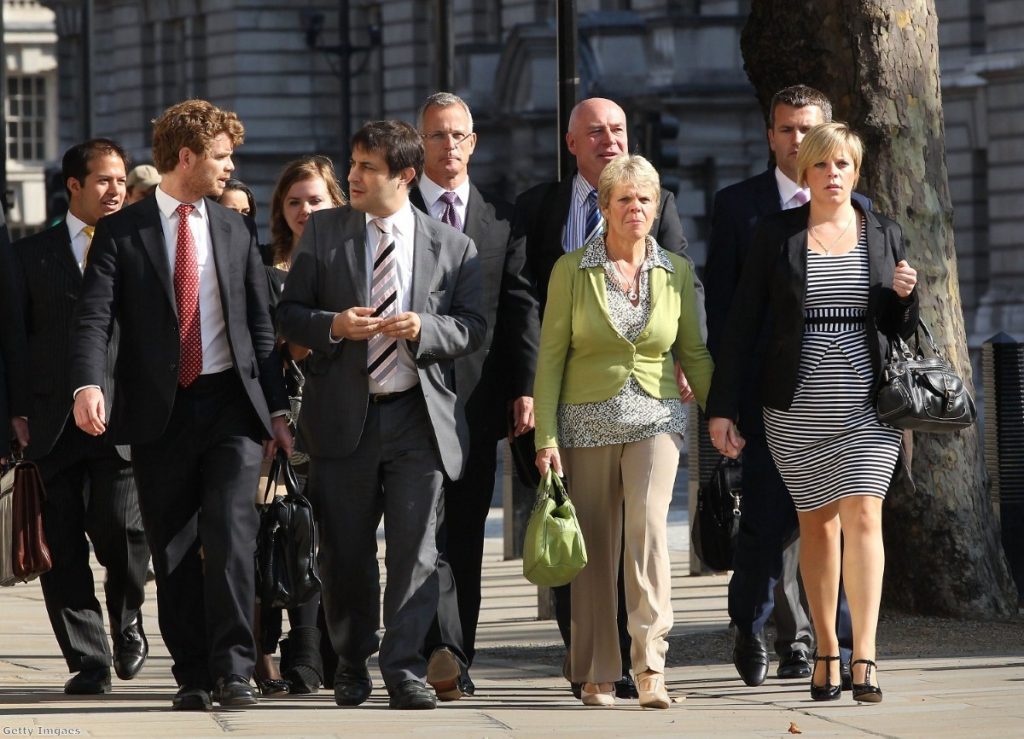Journalism on trial as Leveson inquiry gets underway
By Alex Stevenson Follow @alex__stevenson
The judge-led inquiry set up in the wake of the phone-hacking scandal will not "pull its punches", its chief lawyer has vowed.
Both Robert Jay QC and the chair of the inquiry Lord Justice Leveson made clear they would not shirk from challenging the "extraordinary" influence the media has on British public life.
Mr Jay said the "power of the press" might have prevented politicians from addressing the issue before now, in an unexpectedly combative opening statement.


"The public may fear this inquiry may pull its punches for the self-same reasons," he said. "I am able to nip any such concerns in the bud."
Lord Justice Leveson began with a pre-emptive strike against any hostile press coverage of his hearings, warning journalists against any unjustified coverage.
He said he valued freedom of speech but would draw his own conclusions if newspapers chose to report the proceedings unfairly.
"I anticipate that… monitoring will take place of press coverage of the months to come," Lord Justice Leveson said.
"If it appears those concerns are made out without objective justification, it might be appropriate to draw the conclusion that these vital rights are being abused which would itself give evidence of culture, practice and ethics which could be relevant to my ultimate recommendations."
The inquiry was "concerned" that journalists might be reluctant to speak out against their employers, for fear of hindering their career, Mr Jay added.
He called on those who had witnessed wrongdoing to have the "moral courage to speak out".
This courage could be strengthened through what Mr Jay referred to as "protective measures for whistleblowers".
'Horse before the cart'
The inquiry will only move on to look at the phone-hacking allegations after the Metropolitan police's criminal investigation concludes.
Campaigners have criticised the inquiry for taking its two parts in the wrong order, arguing that it will be impossible to draw conclusions about the media's ethical culture without first establishing the facts about phone-hacking.
Mr Jay suggested the inquiry would take a general view of its "self-denying ordinance", however.
"This cart before the horse issue does not mean the inquiry will refrain from entering areas which are also the subject of police investigation," he said.
Following the statement lawyers representing 53 'core participants' who are believed to have fallen victim to phone-hacking began offering submissions.
These will be able to cross-examine witnesses giving evidence to the inquiry, which is taking place at the royal courts of justice. Evidence sessions are not expected to begin until next week.
The phone-hacking scandal erupted earlier this year after it emerged the phone of murdered schoolgirl Millie Dowler had been hacked, giving her parents false hope that she may still be alive.
Her family are expected to appear at the inquiry, as are a range of celebrities among the 'core participants' including actress Sienna Miller, author JK Rowling, actor Hugh Grant and singer Charlotte Church.
Lord Justice Leveson spent the buildup to today visiting newspapers to gain an insight into how they work.
He said his probe would offer a "broad brush" assessment of the state of the media.
"It cannot descend into a detailed analysis that might lead me to applaud one newspaper or criticise another," he added in his opening statement.
But the appeal court judge pledged to address the key question preoccupying the victims of phone-hacking.
"At the heart of this inquiry may be a very simple question," he said. "Who guards the guarders?"









